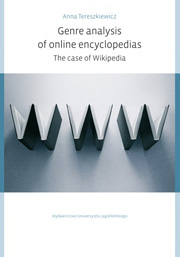3 - Encyclopedia as a genre
Published online by Cambridge University Press: 05 September 2014
Summary
Encyclopedia as a genre of information
Encyclopedias have a long tradition of use, constituting a generally familiar genre. As Louis Shores, editor of Collier's Encyclopaedia, put it, “the importance of encyclopedias lies in their ability to help people see that knowledge has unity, and thus help to achieve generalization in a world of over-specialization” (after Collison 1964: 213). Similarly, Kister (1981: 4), an encyclopedia critic, argues that “whatever their imperfections, general encyclopedias can serve as a gateway to understanding the most profound or intricate knowledge human beings have yet produced.” Yet, as Olkiewicz (1988) observes, there is usually something more to an encyclopedia. These compendia of knowledge rarely constitute only impassionate and strictly objective registers of information. As the scholar emphasizes, each encyclopedia “emanates the spirit of its time, follows a particular system of values, as it mirrors the views and mentality of its creators, but also of the receivers to whom it is addressed” (ibid.: 8).
Encyclopedias belong to the large group of genres of information, the collection comprising all sorts of reference materials, i.e. sources consulted to discover specific facts or information.
Due to a large internal diversification of reference materials, their typology may be performed according to different criteria, such as scope or function (Marszałek 1986, Encyclopedia Britannica (EB) 1990, Wielka Encyklopedia Powszechna (WEP) 2002).
- Type
- Chapter
- Information
- Genre Analysis of Online EncyclopediasThe Case of Wikipedia, pp. 29 - 40Publisher: Jagiellonian University PressPrint publication year: 2010



